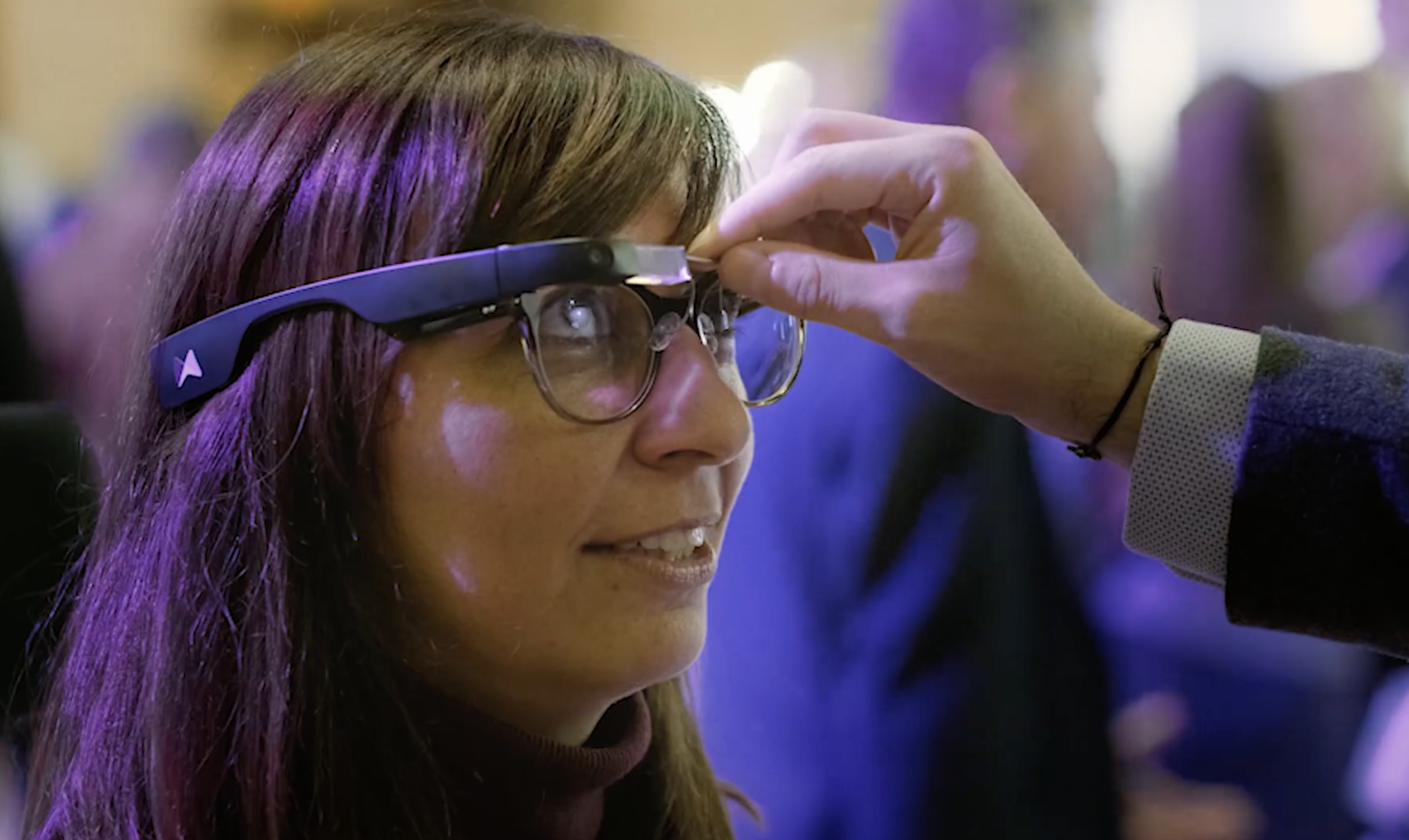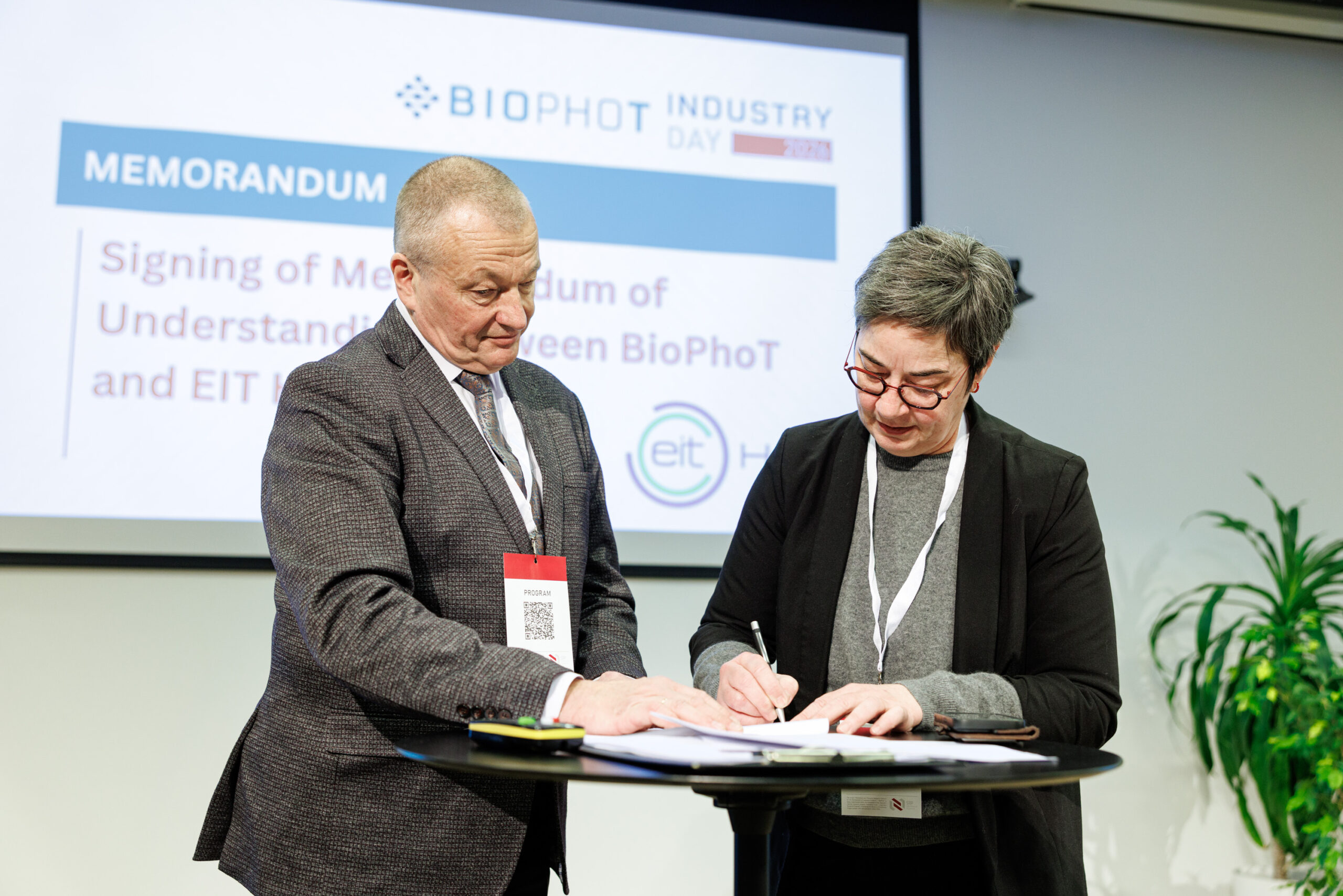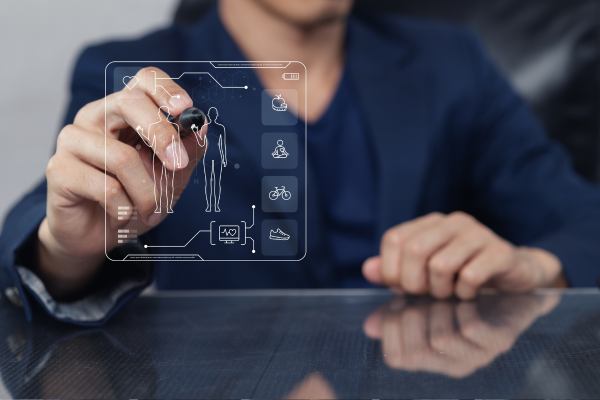15th April 2020
Winners of the first round of EIT Health’s Bridgehead Europe 2020 announced
The 15 newest Bridgehead start-ups promise a range of solutions, including AI for medical imaging and cancer treatments, an app with vibrating bracelets to guide the sight-impaired, wearables to support movement and to treat back injuries, improved diagnosis and better bone implants – and several other innovations. EIT Health’s Bridgehead Europe programme will be giving these start-ups individual, expert support to help them reach new European markets.

A total of 57 applications, covering biotech, medtech and digital health solutions, were evaluated by three independent jury members for the first round of 2020 applications. Start-ups were judged based on the innovativeness of their solution, their business model and traction in the home market, and their readiness to expand to other European markets. Applications are being accepted until 10 May 2020 for a second round of 2020 support.
The Bridgehead Europe programme will support the chosen start-ups in moving from their home markets to new markets in Europe, by providing hosting at a local start-up accelerator, and guidance with regulatory and market challenges.
The chosen start-ups
The 15 start-ups selected for the first round of Bridgehead Europe support in 2020 are:
DoDOC (Portugal) enables teams to collaborate when editing, reviewing and approving scientific, medical and regulatory documents. The software assists with formatting, checking versions and protecting against unexpected crashes, to help teams work better together.
Gogoa (Spain) develops affordable and effective wearable solutions to help people increase capacity for movement. Their bio-mechanical experts create wearable robotics that support human movement for health-related critical challenges.
inHEART (France) is like Google Maps for interventions to address cardiac electrical disorders, with a cloud-based service to transform medical images into a digital twin of the patient’s heart that can be used to better plan and guide cardiac catheter ablations.
Japet (France) combines medical science and modern robotics in solutions to improve and protect the health of peoples’ backs at work. Its exoskeleton helps employees affected by back pain to recover and stay healthy at work.
N-Vibe (France) uses an app and vibrating bracelets, worn on the left and right wrists to help guide the visually impaired,. The system aims to overcome isolation and increase the independence of the millions of visually impaired across Europe.
Noraker (France) is developing bioactive implants addressed to a wide spectrum of bone trauma indications (bone fracture, tendon and ligament rupture). As the population ages, this innovation aims to preserve the quality of people’s bones for a better and longer active life.
Parsek (Austria) seeks to provide user-friendly solutions that simplify collaboration in healthcare: Vitaly Managed Care enables personalised coordination of care in an outpatient setting. Vitaly Case Conference allows for remote collaboration between healthcare professionals.
Pixyl (France) is working to improve patient care by placing advanced AI tech in the hands of radiologists and neurologists. Their powerful cloud-based solutions automatically analyse medical images, highlight anomalies, and extract clinically relevant measurements for improved insight and decision-making in patient diagnosis and treatment.
Primaa (France) develops AI-based software that allows for the automation of histological diagnosis, improving a vital step in the detections of cancer and other pathologies. Primaa meets a need felt in pathology services, where pathologists are faced with a constantly increasing volume of analyses.
Re.flex (Romania) develops digital care programmes for people with knee arthrosis and lower back pain. Based on two motion tracking sensors, the system offers patients a unique training session, in the comfort of their homes, with monitoring by a real physiotherapist and their orthopaedic doctor.
STEMI (Slovakia) is a communication platform that has already assisted healthcare professionals in managing emergency cases such as heart attack, stroke and severe trauma. The system allows for remote transmission of patient’s information (electrocardiogram, stroke card, visual details of injuries, etc.) to improve diagnosis by paramedics and help hospitals manage incoming cases.
TheraPanacea (France) is a French company seeking to introduce cutting-edge technology in artificial intelligence to disrupt cancer treatment with radiotherapy. Their “ART-Plan” solution is designed to improve the efficiency and quality of radiotherapy centres, regardless of the resources and expertise available.
Voiceitt (Israel) develops a speech recognition technology designed to recognise non-standard speech patterns, enabling people with severe speech and motor disabilities to access mainstream speech recognition technologies and communicate with others by voice.
Walkolution (Germany) changes the way people work in the office, with a silent and motorless walking desk. Companies such as Bayer and IBM use these products to improve their teams’ health and provide a healthy work experience. Founded by a senior medical doctor and a leading design company, Walkolution’s concepts are based on science and sustainable manufacturing.
Wefight (France) develops chatbots powered by artificial intelligence. These companions support patients through their healthcare journey. The solution answers questions and proactively brings the appropriate information at the right time to patients. To date, there are seven versions of the product that support more than 100,000 patients with cancer and chronic diseases.
About Bridgehead Europe
The EIT Health Bridgehead Europe programme provides assistance to European health start-up thems that have a desire to grow their business beyond home markets. The programme provides start-ups with the support of Europe’s best incubators, accelerators or clusters.
Bridgehead Europe functions as an internationalisation programme for start-ups teams, giving them the opportunity to be hosted by one or more top-notch organisations from EIT Health’s vetted network of European accelerators. Start-ups travel to accelerators of their choice, to speed access to markets, tap into local networks of partners and clients, access infrastructure and get a first-hand feeling for the local regulatory and business context. To date, Bridgehead Europe has supported 39 start-ups in implementing winning market strategies across Europe.
Start-ups are guided by a trusted and seasoned local support team, who open the right doors to establish and grow cross-border business. The accelerators, incubators and clusters catalysing start-up development are referred to as CATalysers (CATs). In 2020, Bridgehead Europe counts with 36 CATalysers spanning across 12 European countries.
Start-ups interested in participating in the second 2020 Bridgehead Europe round can apply here by 10 May 2020 at 23:59h CET and take your business abroad.
When Ideas Meet Ambition - How Impact Happens at EIT Health

How Impact Happens at EIT Health
EIT Health and BioPhoT Sign Memorandum of Understanding to Strengthen Health Innovation Collaboration

Strengthening health and life-science innovation in Latvia
